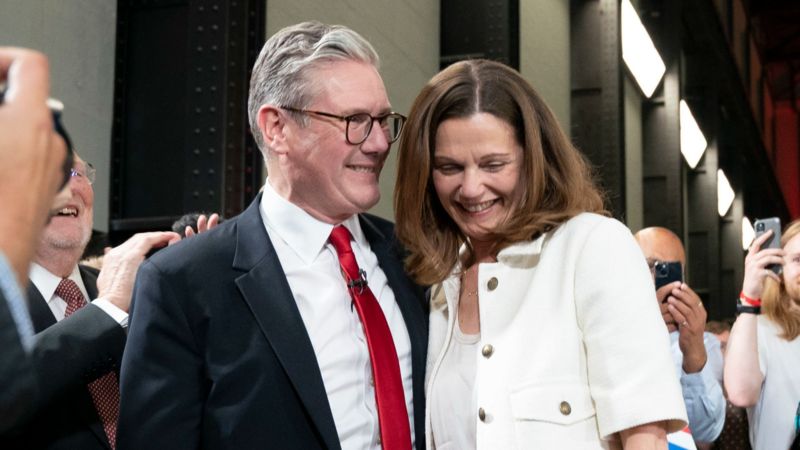KEIR Starmer and his renewed Labour Party won a landslide election in Britain on Thursday, according to the exit poll, ending 14 years of Conservative Party rule and moving toward a new government dominated by the center left.
This was an election that was more about mood than policy, and voters conveyed their frustration with the incumbent Tories and a willingness to take a chance on a “changed Labour Party,” as Starmer calls it, purged of its hard-left elements and socialist rhetoric.
The sophisticated exit poll, sponsored by Britain’s top broadcasters, found that Labour was on track to win 410 seats in the 650-seat Parliament. The Conservatives were projected to take 131 seats — which would the party’s worst result since its founding.
The Liberal Democrats came in third with 61 seats, according to the model. One of the surprises was how well Nigel Farage’s new right-wing Reform UK party was doing. Official results will follow, with most coming in the early morning hours in Britain.
The end of the Conservative government — and the resurrection of what appears to be a more disciplined, centrist “establishment Labour” — marks a huge reversal for Britain’s top parties.
Speaking from his London constituency after the announcement that he had retained his own parliamentary seat, Starmer said voters across the country had sent a message that it was time to end “the politics of performance” and “return to politics as public service.”
Today’s Labour leaders bill themselves not as socialist firebrands but sensible managers. They don’t read Das Kapital. They read the Financial Times.
Starmer, who edited a Trotskyite magazine in his youth, has promised to put “wealth creation” at the center of all the new government does, to rouse a sleepy economy, help young families buy affordable homes and bolster the beloved but overextended National Health Service.
Starmer and his team have vowed to be sober-minded guardians of the treasury — and they will have to be. Public finances are stretched. Government debt has soared to its highest level since the 1960s. Many assume taxes will rise.
The mood in Britain right now can be described as somewhere between fairly dubious and highly skeptical of politicians and their promises. Like their American cousins across the pond, British voters are feeling sour. The vibe is gloomy. The chances of disappointment are high.






